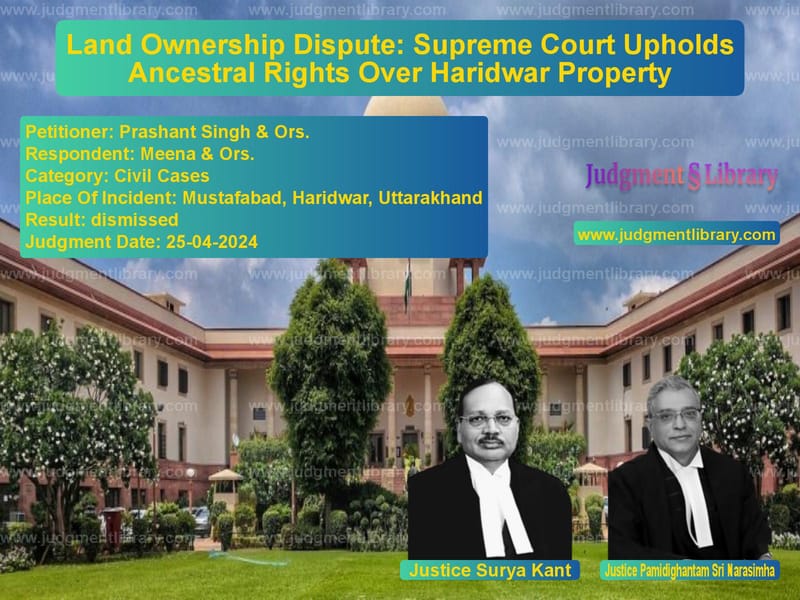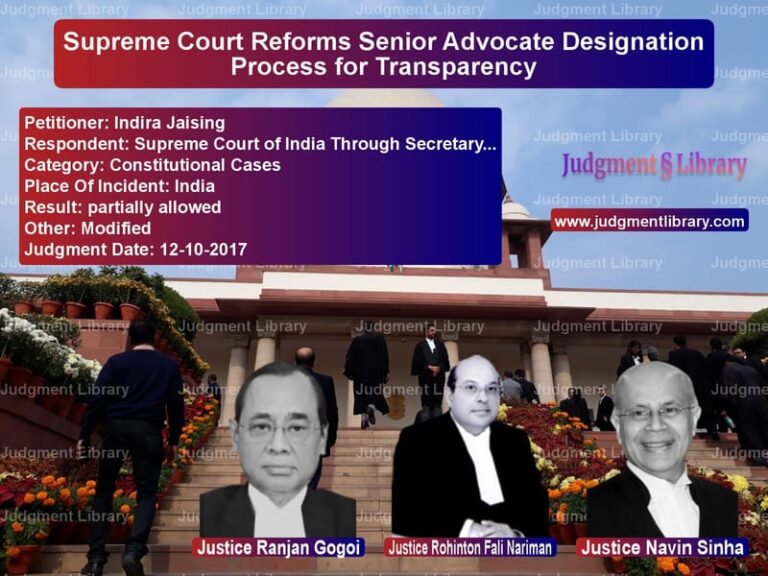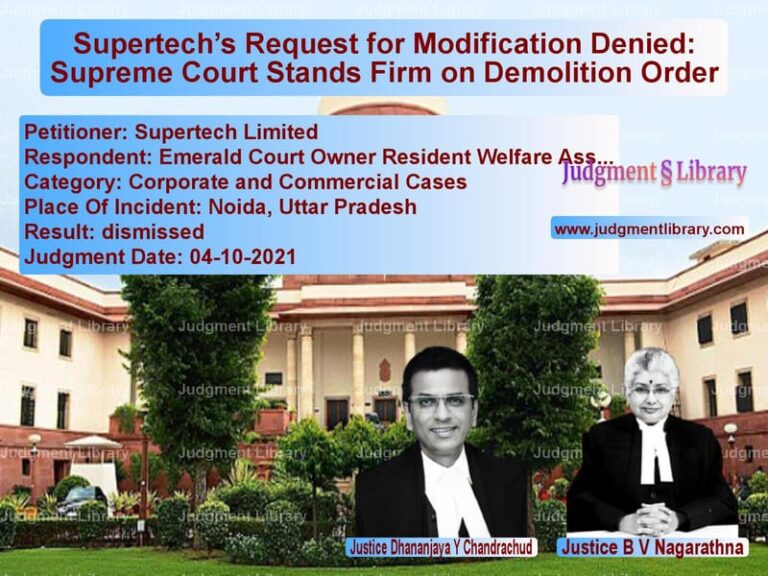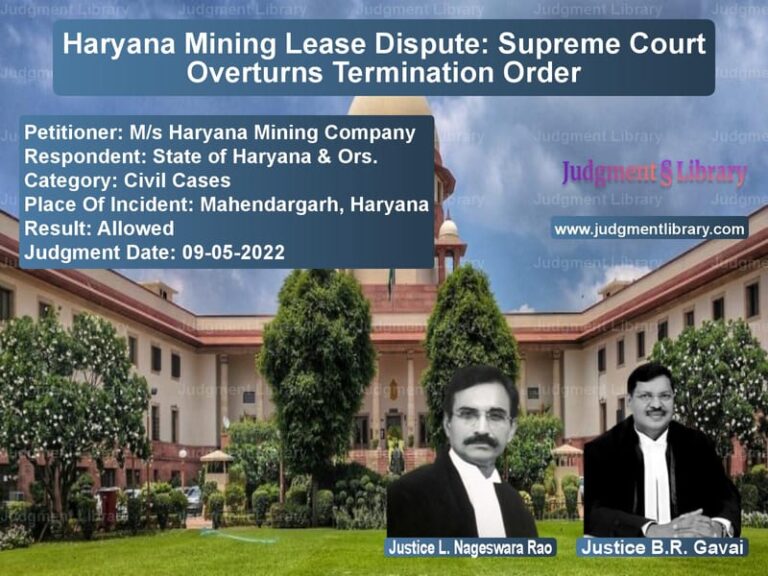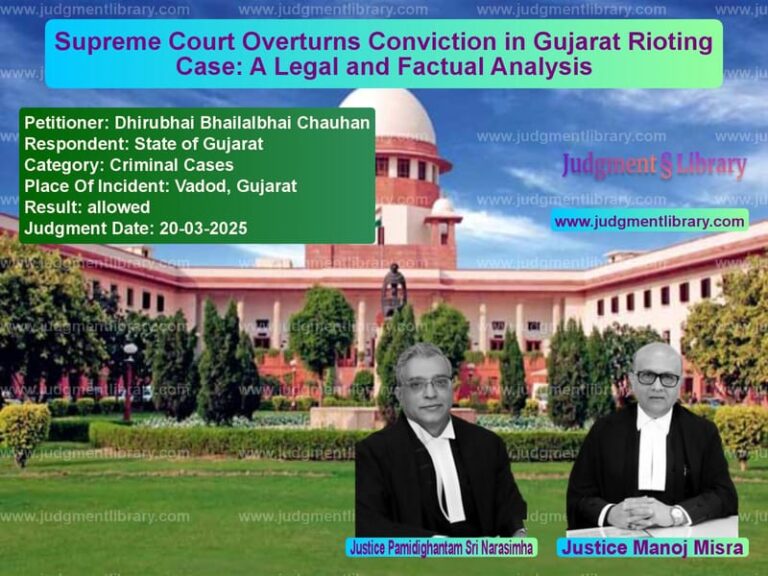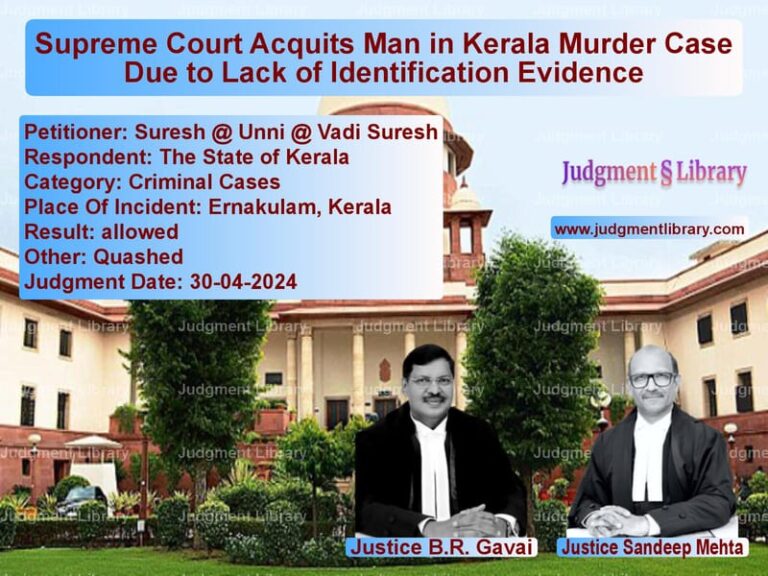Land Ownership Dispute: Supreme Court Upholds Ancestral Rights Over Haridwar Property
The Supreme Court of India recently decided a significant land ownership dispute in Prashant Singh & Ors. v. Meena & Ors., concerning property rights over Khasra Nos. 115, 151, and 152 in Mustafabad, District Haridwar, Uttarakhand. The Court ruled in favor of the heirs of Kalyan Singh, restoring their ownership rights after decades of legal battles. This judgment clarifies the scope of jurisdiction under the U.P. Consolidation of Holdings Act, 1953, and reaffirms the principle that a person’s vested property rights cannot be extinguished arbitrarily.
Background of the Case
The dispute centered around land originally owned by Angat, whose three sons—Ramji Lal, Khushi Ram, and Pyara—became co-owners. Pyara passed away without heirs, and his share was divided between Ramji Lal and Khushi Ram. Khushi Ram’s son, Kalyan Singh, inherited his father’s share. However, during consolidation proceedings in the late 1950s or early 1960s, Ramji Lal obtained an order from the Consolidation Officer on May 8, 1960, declaring Kalyan Singh as “civilly dead” and expunging his name from the ownership records.
Upon discovering this, Kalyan Singh filed Suit No. 19/1985 before the Assistant Collector, Haridwar, to reclaim his ownership. His suit was decreed in his favor. However, the matter went through multiple appeals:
- The First Appellate Court upheld Kalyan Singh’s ownership.
- The Board of Revenue, in a Second Appeal, remanded the case, questioning the maintainability of a declaration suit under Section 34 of the Specific Relief Act, 1963.
- Kalyan Singh’s writ petition against this order was allowed by the Uttarakhand High Court on January 16, 2013.
Aggrieved, the successors of Ramji Lal appealed before the Supreme Court.
Arguments by the Appellants (Successors of Ramji Lal)
- They contended that the 1960 order had attained finality under Section 49 of the U.P. Consolidation of Holdings Act, 1953, barring any further civil litigation.
- They argued that Kalyan Singh’s suit was time-barred and should have been dismissed.
- The Board of Revenue was correct in remanding the case to determine whether Kalyan Singh’s suit should have sought a consequential relief of possession.
Arguments by the Respondents (Heirs of Kalyan Singh)
- They asserted that the Consolidation Officer had no jurisdiction to declare Kalyan Singh dead or to strip him of his ancestral rights.
- They argued that Kalyan Singh was a co-owner, and his possession was legally deemed joint with the other heirs.
- Since Kalyan Singh had inherited ownership before the consolidation proceedings, his rights could not be extinguished arbitrarily.
Key Observations of the Supreme Court
- The Court held that Section 49 of the 1953 Act does not empower a Consolidation Officer to alter ownership rights arbitrarily.
- The order of May 8, 1960, was declared null and void as it was beyond the jurisdiction of the Consolidation Officer.
- The Court reaffirmed: “The Consolidation Officer could not take away the ownership rights of Kalyan Singh, which he had already inherited before the commencement of the consolidation proceedings.”
- The Court rejected the argument that Kalyan Singh needed to seek possession, ruling that possession of one co-owner is deemed joint possession of all.
Final Judgment
The Supreme Court dismissed the appeals and upheld the High Court’s decision, restoring Kalyan Singh’s ownership. It held:
“The order dated 08.05.1960 had no binding force or adverse effect on the rights of Kalyan Singh. It was passed usurping a power fraudulently, which never ever vested in a Consolidation Officer.”
The contempt petition related to the case was also dismissed.
Implications of the Judgment
- The ruling reinforces that consolidation authorities cannot arbitrarily alter ownership records.
- It affirms that co-owners retain their joint possession unless expressly ousted.
- The judgment serves as a precedent for protecting ancestral land rights from fraudulent claims.
Conclusion
The Supreme Court’s verdict is a landmark decision in property law, emphasizing that legally vested ownership rights cannot be extinguished through administrative maneuvers. By reinstating Kalyan Singh’s title, the Court has upheld the rule of law, ensuring justice for those deprived of their rightful inheritance.
Petitioner Name: Prashant Singh & Ors..Respondent Name: Meena & Ors..Judgment By: Justice Surya Kant, Justice Pamidighantam Sri Narasimha.Place Of Incident: Mustafabad, Haridwar, Uttarakhand.Judgment Date: 25-04-2024.
Don’t miss out on the full details! Download the complete judgment in PDF format below and gain valuable insights instantly!
Download Judgment: prashant-singh-&-ors-vs-meena-&-ors.-supreme-court-of-india-judgment-dated-25-04-2024.pdf
Directly Download Judgment: Directly download this Judgment
See all petitions in Property Disputes
See all petitions in Landlord-Tenant Disputes
See all petitions in Specific Performance
See all petitions in Judgment by Surya Kant
See all petitions in Judgment by P.S. Narasimha
See all petitions in dismissed
See all petitions in supreme court of India judgments April 2024
See all petitions in 2024 judgments
See all posts in Civil Cases Category
See all allowed petitions in Civil Cases Category
See all Dismissed petitions in Civil Cases Category
See all partially allowed petitions in Civil Cases Category

